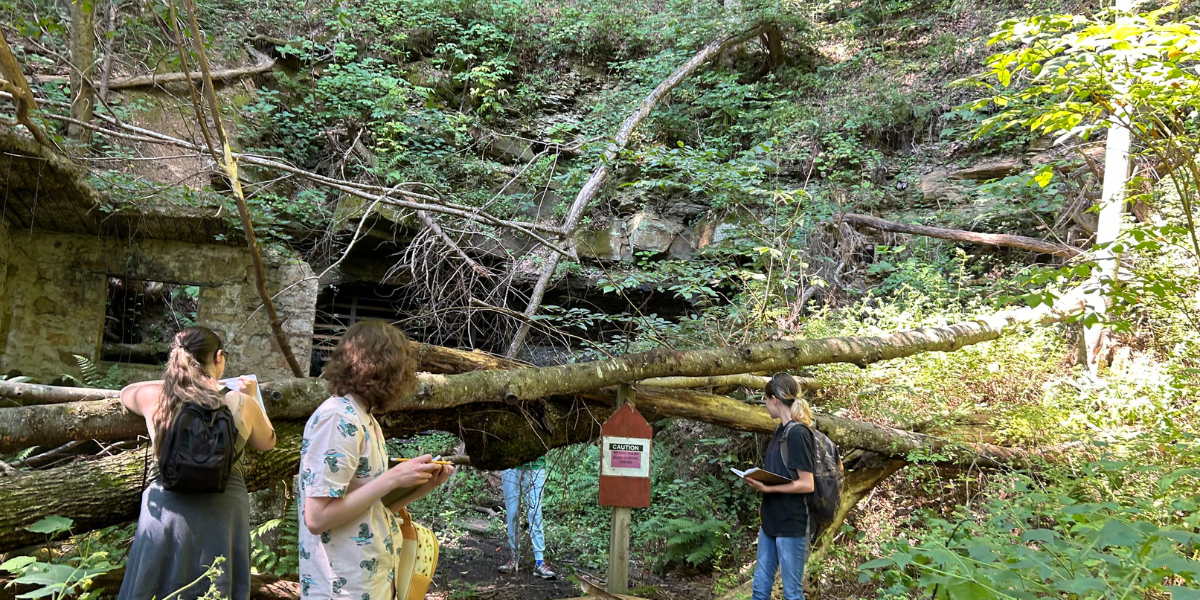By Emma Engle and Willow Ferguson
The 2024 Woods Program was a nature writing retreat hosted by Davis & Elkins College (D&E) at Camp Pioneer in Beverly, West Virginia. From August 3 to August 8, the program sponsored ten participants, a combination of current and prospective students from across the state. The goal of the retreat was to explore the environmental humanities, a critical field for making environmental issues legible to the public.
This program was funded by an MLA Pathways Step Grant, a partnership designed to promote recruitment of college students interested in writing, communication, and literature. And, given the location of D&E near the Monongahela National Forest, the English department focuses much of its work on “place,” nature writing, and environmental justice.
Woods Program participants hiked, kayaked, and went horseback riding to inspire their writing and create opportunities to learn about the natural world directly. Additionally, students participated in writing workshops led by authors Doug van Gundy, Elizabeth Savage, and Sydney Tammarine; humanities professors Jay Smith and Brantley Craig; and forest manager Iris Allen. This work gave students a space to build their writing portfolios and a chance to experience what college writing courses are like.
Based on a survey of program attendees, we found that this program boosted self-confidence and college readiness across the board. It also illustrated the connections between writing and environmentalism. One participant stated, “For me, this program had perfectly followed my interest in both writing and nature, and for someone who usually does not have time for both, this was a great opportunity.”
As assistant directors, the Woods Program benefited us as well. Through the program, we were able to gain experience in program organization, marketing, and discussion leading. Both of us are double majors in Environmental Science and English, and this program combined our passions. We guided students through important discussions about the environment and how to bring the humanities into conversations about animal rights, sustainability, and justice.
One of the main goals of this program was to highlight the importance of the environmental humanities. This multidisciplinary field combines literature, writing, philosophy, and similar disciplines to engage current scientific issues. Humanistic scholarship is essential to our world today; providing environmental education for the general public is vital for promoting a more sustainable future. In other words, climate change is not only a scientific issue but also a cultural one, and the environmental humanities engage the ethical and social dimensions of the issue. College students can take courses in the environmental humanities, but the Woods Program focuses on outreach. It caters to young people who want to learn more about how they can enact positive environmental change through storytelling, philosophy, and community building.
Participating in this program gave us and prospective students a unique opportunity to combine our interests in nature study and creative writing. Staying overnight in cabins and getting outdoors provided inspiration, allowing us build bonds with each other and the natural environment. Based on positive feedback from the 2024 Woods Program, D&E aims to continue the program yearly. We look forward to hosting more groups interested in nature writing and we hope to continue promoting the environmental humanities.
For questions or more information about the Woods Program, contact the project director Dr. Sebastian Williams at williamss4@dewv.edu or visit our website here: https://sites.google.com/view/nature-writing-retreat

